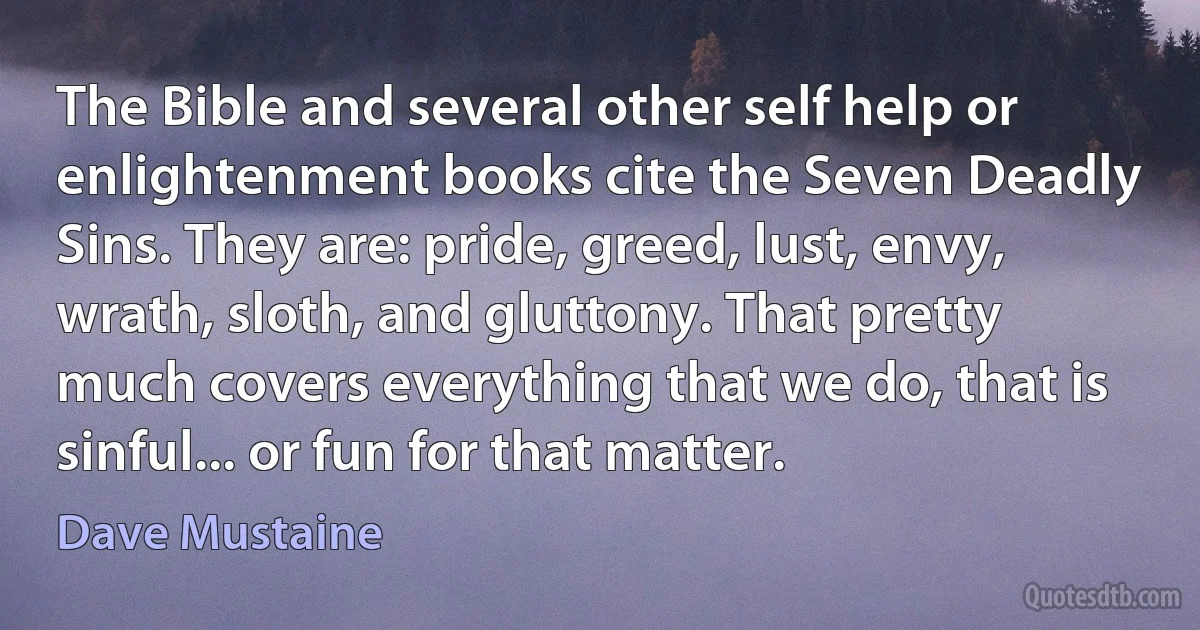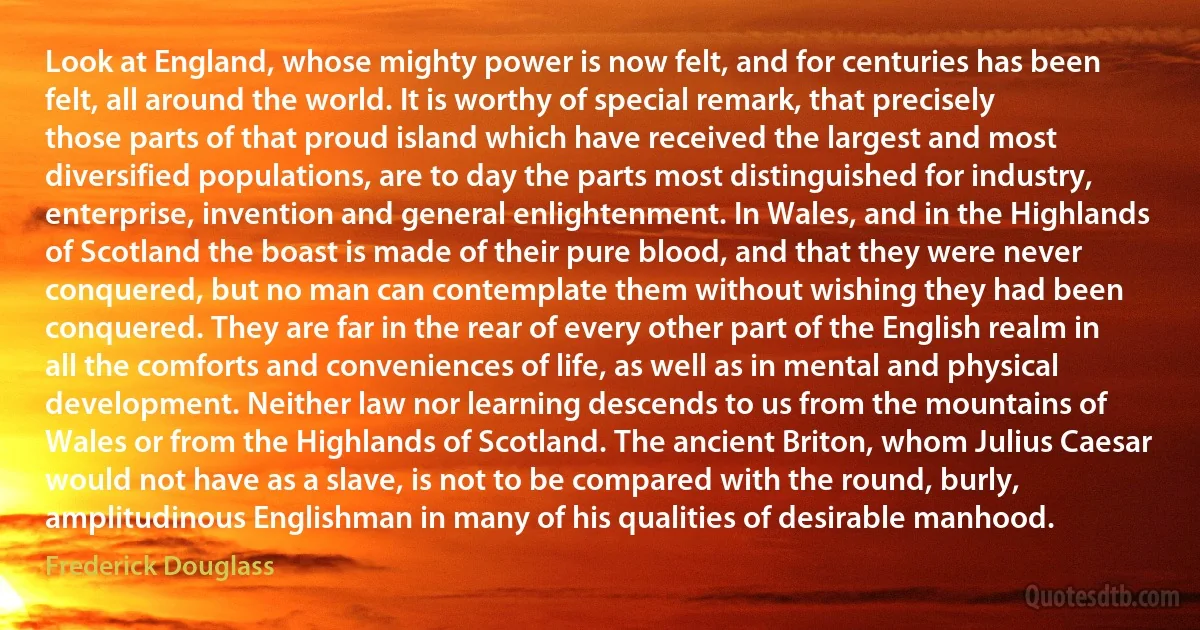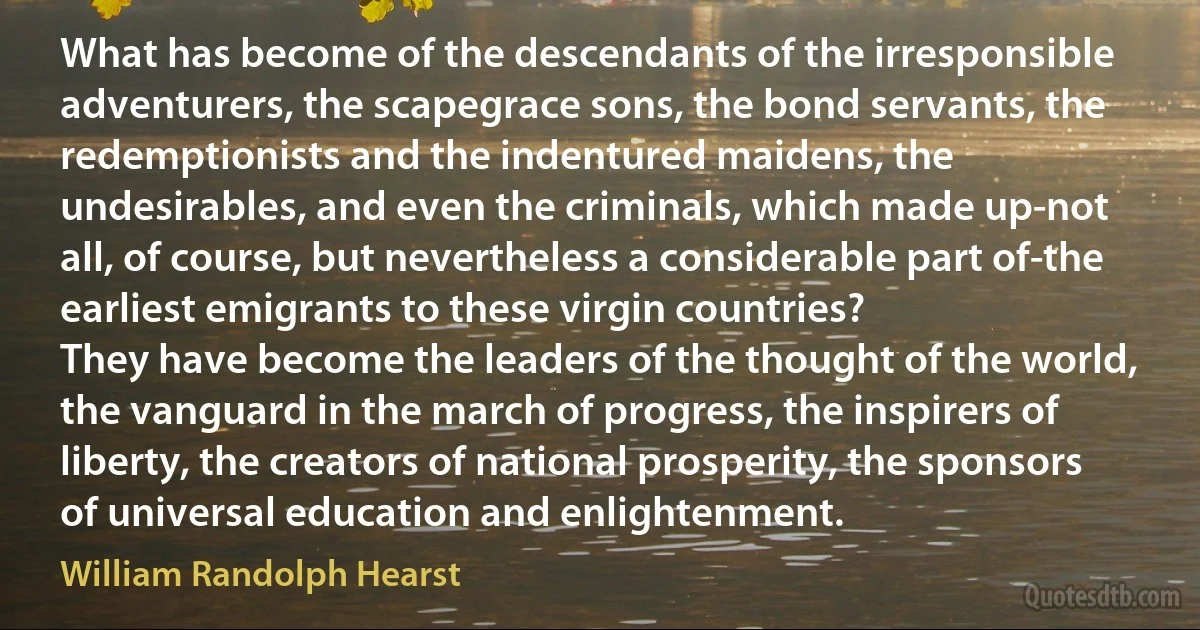Enlightenment Quotes - page 4
Theorist, and trifler though I may be called, I again assert as our first and holiest duty, the elevation and enlightenment of the proletariate: I again call on those nobler spirits among us who are working erroneously, it may be, but with incipient or growing sincerity and nobleness of mind, to divert their strenuous effort from the promotion of narrow class interests, from silly squabbles about offices and salaried positions, from a philanthropy laudable in itself and worthy of rational pursuit, but meagre in the range of its benevolence and ineffectual towards promoting the nearest interests of the nation, into that vaster channel through which alone the healing waters may be conducted to the lips of their ailing and tortured country.

Sri Aurobindo
In the shift from direct democracy to representational democracy, the printed book became an embodiment of thought for the physically absent author; and so the popular art form of the popular book and the pamphlet re-presented ideas and contributed to the public space of political philosophies of the Enlightenment. Television, however, now brings forth this new kind of public space, and it calls into being this new world, not of the educated citizenry in a republic, but of the electropeasantry in the state of Entertainment. Recall how people stopped singing in pubs when they brought in the TV set, and you will appreciate the new passivity in which people stop voting for their representatives as TV takes over the electoral campaigns.

William Irwin Thompson
The mitigating feature in the gloom of those far-off days was the shaft of light sunk by Christian missions, a shaft of light to which we owe our initial enlightenment. With successive governments of the time doing little or nothing to ameliorate the harrowing suffering of the black man at the hands of slave drivers, men like Dr. David Livingstone and Dr. John Philip and other illustrious men of God stood for social justice in the face of overwhelming odds.

Albert Lutuli
Rather, we heirs of Enlightenment think of enemies of liberal democracy like Nietzsche or Loyola as, to use Rawls's word, "mad.” We do so because there is no way to see them as fellow citizens of our constitutional democracy, people whose life plans might, given ingenuity and good will, be fitted in with those of other citizens. They are crazy because the limits of sanity are set by what we can take seriously. This, in turn, is determined by our upbringing, our historical situation.

Richard Rorty
He caught his breath, absorbing the impact of the scientific discoveries, the advances in scholarship, the inevitable dwindling into insignificance of issues that had mattered more than his life. He closed his eyes, turned his face away, but he couldn't stop his understanding.
"You see?” said Edward. "They're all happy pagans nowadays. When they take the trouble to worship at all. Enlightenment swept most of that nonsense away, and good riddance!”.

Kage Baker
The Roman god, Lucifer, was the bearer of light, the spirit of the air, the personification of enlightenment. [...] It has been said "the truth will make men free". The truth alone has never set anyone free. It is only DOUBT which will bring mental emancipation. Without the wonderful element of doubt, the doorway through which truth passes would be tightly shut, impervious to the most strenuous poundings of a thousand Lucifers.

Anton LaVey
To fight for the right, to abhor the imperfect, the unjust, or the mean, to swerve neither to the right hand nor to the left, to care nothing for flattery or applause or odium or abuse-it is so easy to have any of them in India-never to let your enthusiasm be soured or your courage grow dim, but to remember that the Almighty has placed your hand on the greatest of His ploughs, in whose furrow the nations of the future are germinating and taking shape, to drive the blade a little forward in your time, and to feel that somewhere among these millions you have left a little justice or happiness or prosperity, a sense of manliness or moral dignity, a spring of patriotism, a dawn of intellectual enlightenment, or a stirring of duty, where it did not before exist-that is enough, that is the Englishman's justification in India. It is good enough for his watchword while he is here, for his epitaph when he is gone. I have worked for no other aim. Let India be my judge.

George Curzon, 1st Marquess Curzon of Kedleston
The student should have enough knowledge of his or her cultural tradition to know how it got to be the way it is. This involves both political and social history, on the one hand, as well as the mastery of some of the great philosophical and literary texts of the culture on the other. It involves reading not only texts that are of great value, like those of Plato, but many less valuable that have been influential, such as the works of Marx. For the United States, the dominant tradition is, and for the foreseeable future, will remain the European tradition. The United States is, after all, a product of the European Enlightenment. However, you do not understand your own tradition if you do not see it in relation to others. Works from other cultural traditions need to be studied as well.

John Searle
when you confuse art with propaganda, you confuse an act of God with something which can be turned on and off like the hot water faucet. If "God" means nothing to you(or less than nothing)I'll cheerfully substitute one of your own favorite words,"freedom". You confuse freedom-the only freedom-with absolute tyranny...
all over this socalled world, hundreds of millions of servile and insolent inhuman unbeings are busily unrolling in the enlightenment of propaganda.

E. E. Cummings
The promise of the Information Age is the unleashing of unprecedented productive capacity by the power of the mind. I think, therefore I produce. In so doing, we will have the leisure to experiment with spirituality, and the opportunity of reconciliation with nature, without sacrificing the material wellbeing of our children. The dream of the Enlightenment, that reason and science would solve the problems of humankind, is within reach.

Manuel Castells



